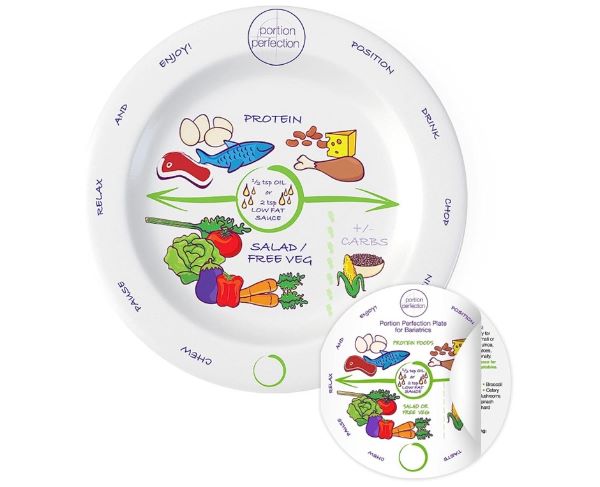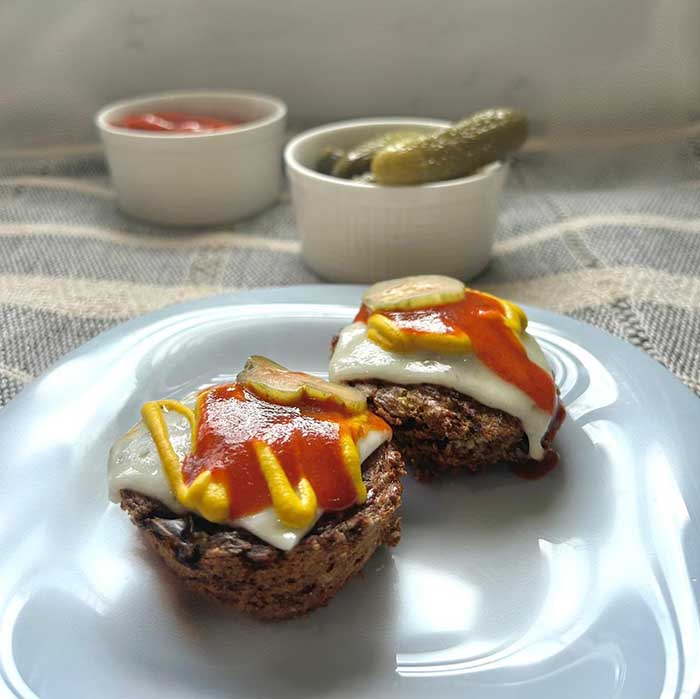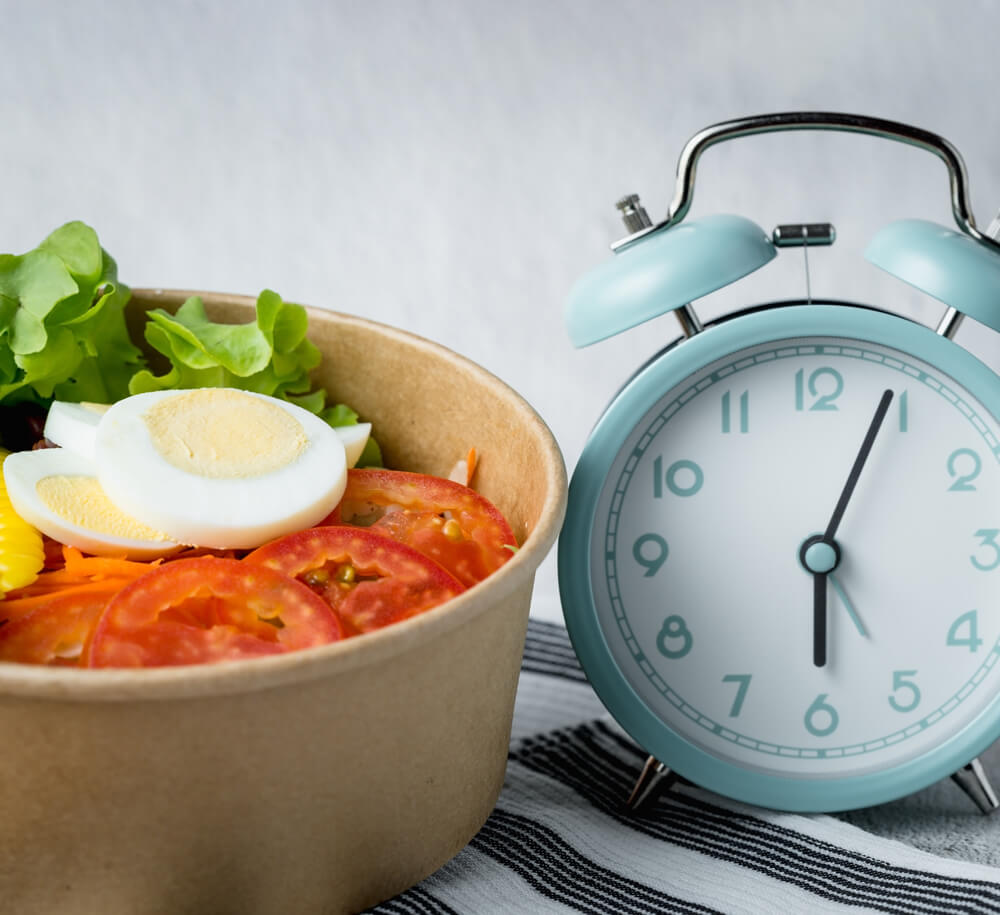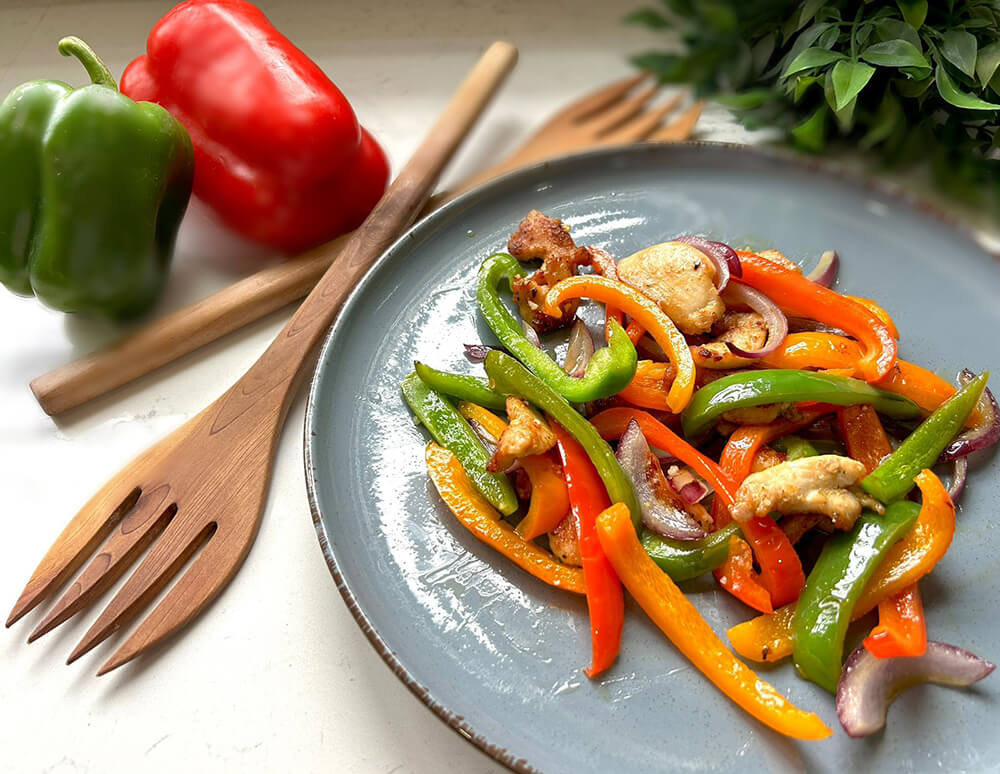Mastering Meal Prepping: A Guide for Bariatric Patients on Why and How to Do It
“Meal prepping is a valuable tool in your bariatric journey”

Whether you’re on a pre-operative diet or striving to maintain a healthy lifestyle post-bariatric surgery, nutrition is key. To achieve dietary success, meal prepping stands out as a front-runner. Relying on purchased meals denies us the chance to craft recipes that are well-balanced in essential nutrients, which is crucial for bariatric patients. Research shows that after weight loss surgery, nutrient-rich diets can significantly improve outcomes: better weight loss and overall health.
Meal prepping allows us to tailor our meals to contain the optimal blend of proteins, fiber, vitamins, and minerals. Additionally, this practice proves to be a time- and cost-efficient strategy. Meal prepping can lead to reduced food expenses and minimized food waste. In this blog post, we’ll explore the significance of meal prepping for bariatric patients and offer practical insights to seamlessly integrate it into your daily regimen.
Why Meal Prepping Matters
Bariatric surgery brings significant changes to your stomach’s capacity and how your body processes food. As a result, your dietary choices post-surgery play a crucial role in your weight loss journey and overall well-being. Meal prepping offers numerous benefits for bariatric patients:
Portion control: prepping meals in advance allows you to portion out your food accurately, avoiding overeating and ensuring you receive the right nutrients. When you cook, you can utilize a kitchen scale or measuring cups to ensure that you’re incorporating the precise amounts of essential nutrients. This meticulous approach to portion control not only guarantees the right nutritional balance but also contributes to the success of your dietary regimen.
Nutritional balance: imagine your meals as a canvas, each ingredient a stroke of color that contributes to the masterpiece of your well-being. A balanced diet isn’t merely a catchphrase; it’s a science-backed principle that profoundly influences your body’s intricate mechanisms. When you provide your body with the right balance of protein, carbohydrates, fats, vitamins, and minerals, you’re essentially giving it the tools it needs to repair and regenerate. Through meal planning, you can include all the food groups that your plate needs in order to nourish your body.
Proteins, known as the building blocks of life, play a starring role in tissue repair and muscle maintenance. Incorporating lean sources like poultry, fish, tofu, or legumes not only provides your body with essential amino acids but also fosters a lasting feeling of fullness.
Vegetables come in a spectrum of colors, flavors, and fill your plate with antioxidants. These powerhouses boost your immune system, combat inflammation, and provide a wealth of fiber, which promotes digestive health and steady blood sugar levels.
Healthy carbohydrates, whole grains, fruit, or legumes offer sustained energy release and nutrients too. Complex carbohydrates fuel your body and mind, while simultaneously providing essential vitamins, minerals, and fiber. Quinoa, apples, chickpeas are a great addition to your meals, just make sure you are tracking your carb consumption at the end of the day.
Healthy fats play a vital role in absorbing fat-soluble vitamins and maintaining cell membranes. Incorporating sources like avocados, nuts, seeds, and olive oil ensures that your body’s processes continue to operate seamlessly. ½ tsp is about the right portion for most meals.
By mapping out your meals in advance, you’re not only making wise dietary decisions but also setting the stage for your body’s optimal performance. Each portion, every ingredient, and the careful consideration of proportions contribute to the intricate balance that your body craves. Remember that after surgery your portions need to change, that’s why using a guide like “the bariatric plate” can be helpful.
Time efficiency: life can get busy, and cooking healthy meals from scratch every day might become a challenge. Meal prepping saves you time by cooking larger quantities and storing them for later consumption.
Reduced temptation: when hunger strikes and you’re unprepared, it’s easy to reach for convenient, unhealthy options. Having pre-prepared meals at hand reduces the temptation to opt for fast food or processed snacks.
How to Start Meal Prepping
Getting started with meal prepping might feel overwhelming, but with some planning and organization, you can make it a seamless part of your routine.
Plan your menu: decide what meals you want to prep for the upcoming week. Aim for a mix of lean proteins, vegetables, complex carbohydrates, and healthy fats. Variety is key to preventing meal fatigue.
Create a shopping list: based on your planned menu, create a comprehensive shopping list. This prevents unnecessary trips to the store and ensures you have all the ingredients you need.
Choose the right storage: invest in quality, portion-controlled containers that are microwave-safe and easy to stack. This will help you maintain portion sizes and keep your food fresh.
Smart assembly: assemble your meals using the “building block” method. Combine a protein source, a serving of veggies, and a controlled portion of whole grains. Consider including sauces or dressings on the side to prevent sogginess.
Label and date: use labels or masking tape to mark containers with the date of preparation. This ensures you consume meals before they spoil and helps you keep track of your meal rotation. Cook fresh meats, poultry, and fish within two days of buying, while red meat is ideal within 3–5 days. Keep them on your refrigerator’s lower shelf during this time. Refrigerated meals should be enjoyed within 3–4 days, while frozen meals maintain quality for 3–6 months.
Quick cooling: swiftly refrigerate fresh foods and cooked meals within two hours of cooking or purchase. For rapid cooling, spread out cooked foods in shallow containers and promptly place them in your fridge.
Freezing strategy: if you’re prepping for more than a few days, freeze some of your meals and transfer them to the fridge a day before consumption. This ensures your meals stay fresh and avoids spoilage.
Mindful reheating: ideally reheat foods only once to minimize the risk of food poisoning.
Snack prep: don’t forget about snacks! Chop up veggies, portion out nuts or yogurt, and have healthy snack options ready to go.
Monitor portions and nutrients: work closely with a registered dietitian to ensure your meals align with your nutritional needs, use apps like Baritastic or Fitness Pal, for example, to track the macronutrients in your meals. This can help you balance nutrition and adjust portion sizes as you progress.
Remember, meal prepping is a skill that takes time to develop. Start small, be patient with yourself, and embrace the learning process. As you consistently incorporate these tips into your routine, you’ll find that it becomes second nature and an invaluable tool in maintaining your health and wellness goals.
Embrace The Journey
Meal prepping is a valuable tool in your bariatric journey. It empowers you to take control of your nutrition, supports your weight loss goals, and sets you up for success in maintaining a healthier lifestyle. Remember, consistency is key, and while meal prepping might require some effort upfront, the rewards are well worth it. With time, you’ll find your rhythm and enjoy the convenience of having nutritious, portion-controlled meals readily available whenever hunger strikes.
Written by Go Light Bariatrics
More From This Category
Tuna Melt Poppers
Delight with these Egg Zucchini Pizza. Consider for your protein-enriched pre-op diet.
Cheeseburger Mini Meatloaf
Delight with these Egg Zucchini Pizza. Consider for your protein-enriched pre-op diet.
Enchiladas Casserole
Enchiladas Casserole is comfort food to give you all the protein you need per meal considering your special dietary needs after weight loss surgery.
Beet Hummus
Delight with these Egg Zucchini Pizza. Consider for your protein-enriched pre-op diet.
Intermittent Fasting After Bariatric Surgery
Intermittent fasting can be an effective tool in maintaining long-term weight loss results after bariatric surgery, consider its benefits and contraindications.
Egg Zucchini Pizza
Delight with these Egg Zucchini Pizza. Consider for your protein-enriched pre-op diet.
Strawberry Yogurt Jello
This time we are serving up a delight that's as guilt-free as it is delicious: our Sugar-Free Strawberry Jello recipe. Consider for your protein-enriched pre-op diet.
Colorful Chicken Fajitas
Delight in the flavors of Mexico with these bariatric-friendly chicken fajitas. Consider for your protein-enriched pre-op diet.
Vegan Recipe – Tofu Pumpkin Pancakes
Discover a delightful vegan recipe - Tofu Pumpkin Pancakes. These pancakes are delicious, easy to make, and are tailored to support your vegan post-op diet needs.
Tofu Scramble
Enjoy a protein-packed, easy-to-digest meal that supports your recovery journey. Try this nutritious Tofu Scramble recipe tailored for your post-op diet.











0 Comments